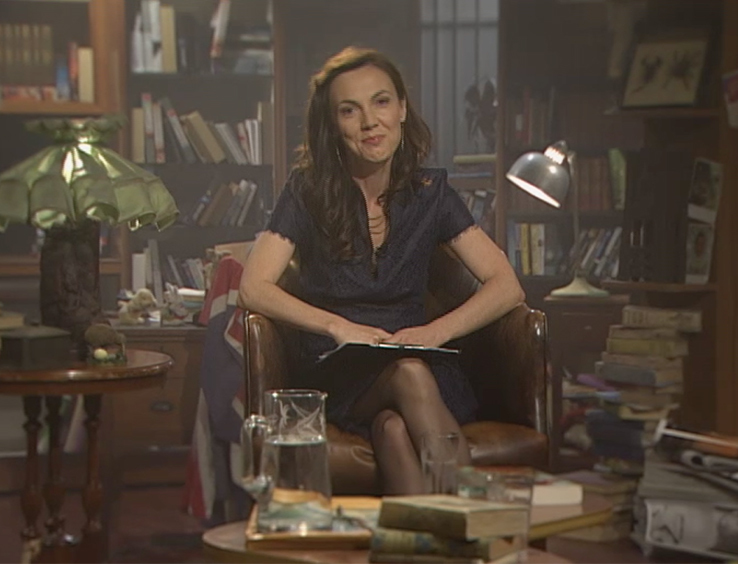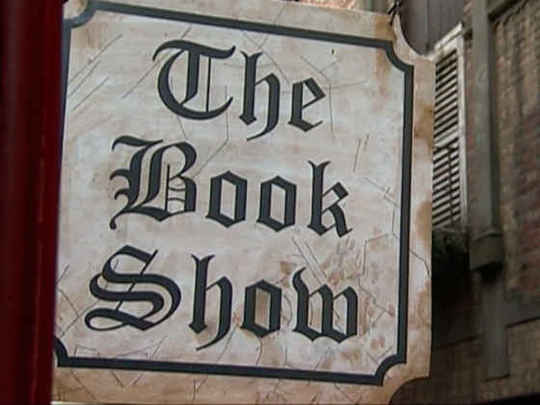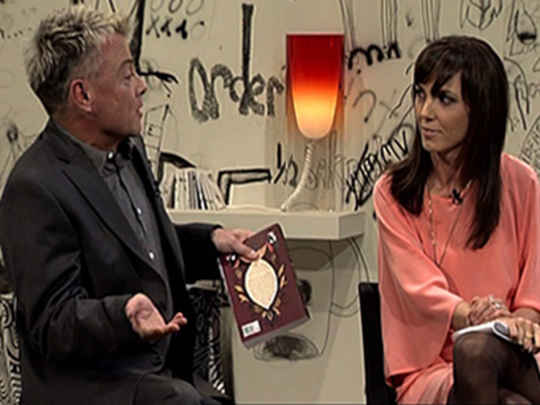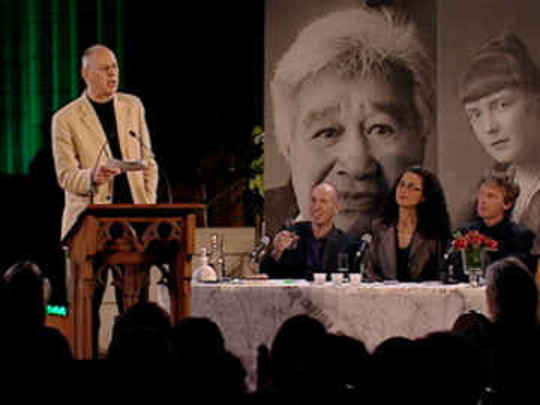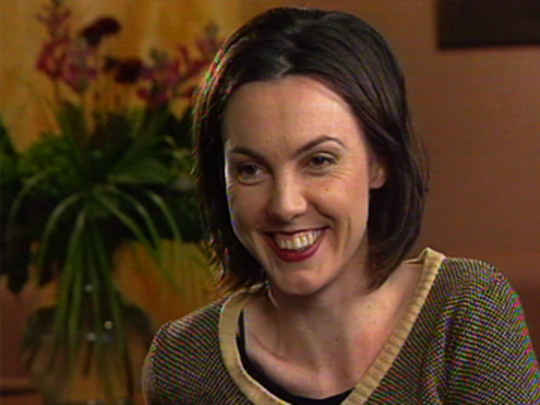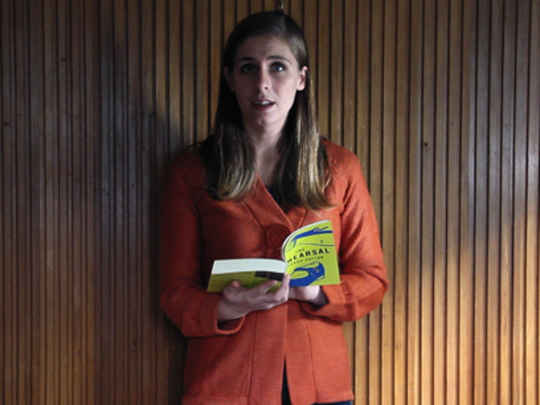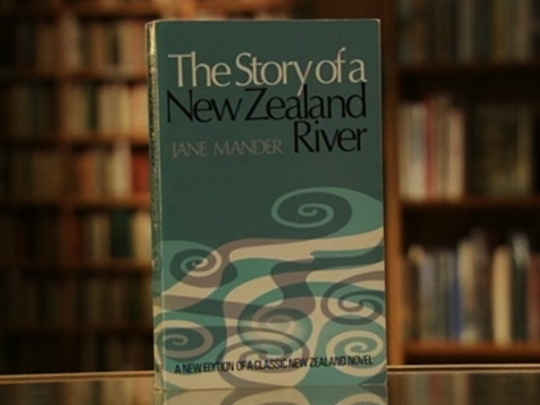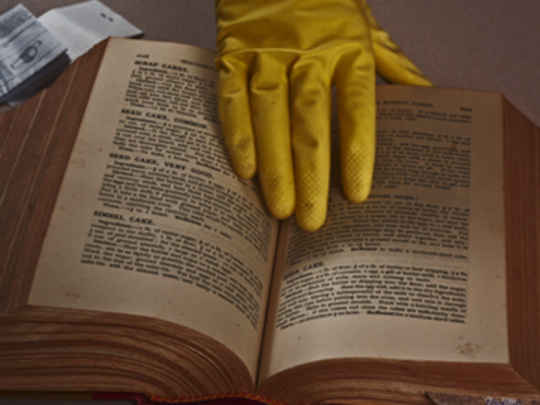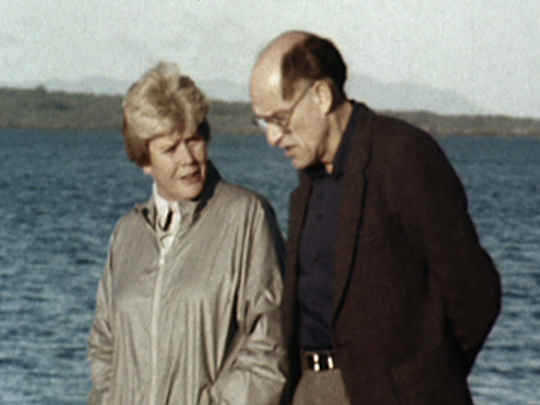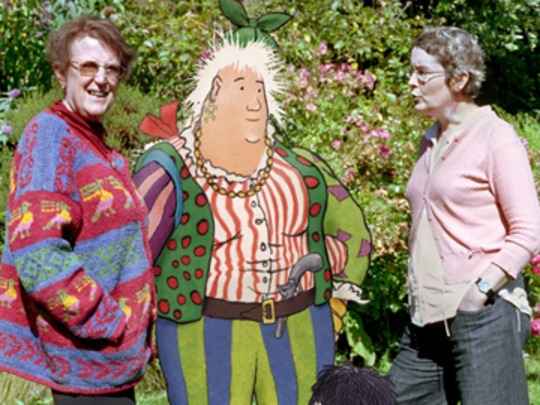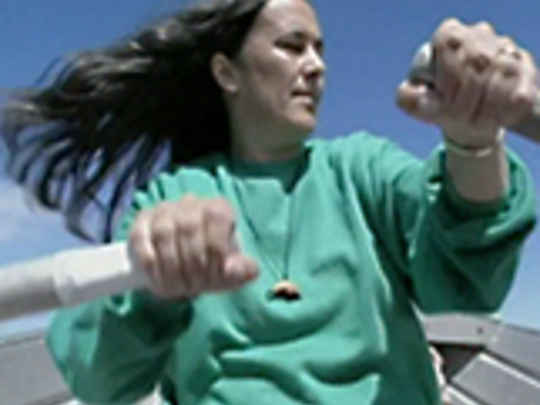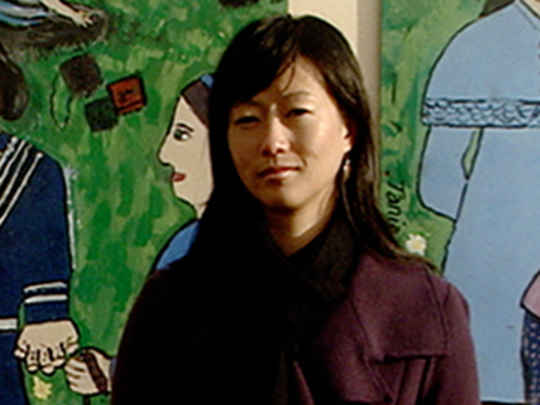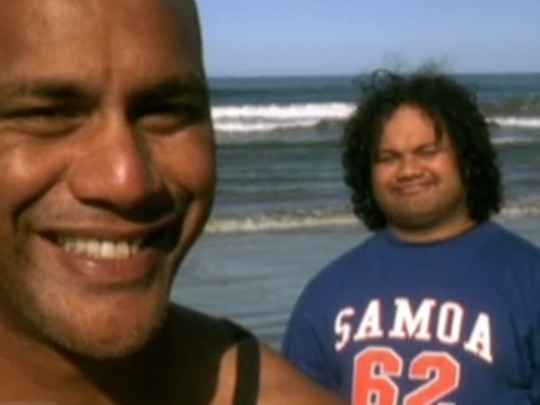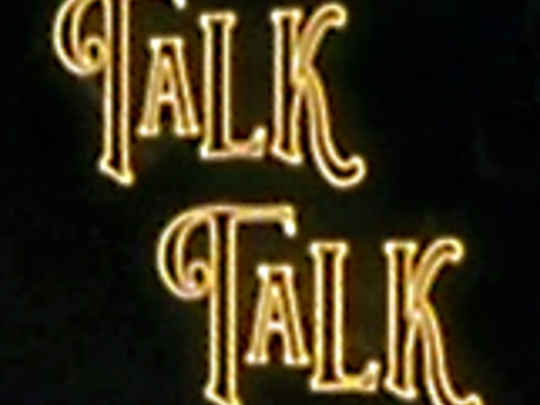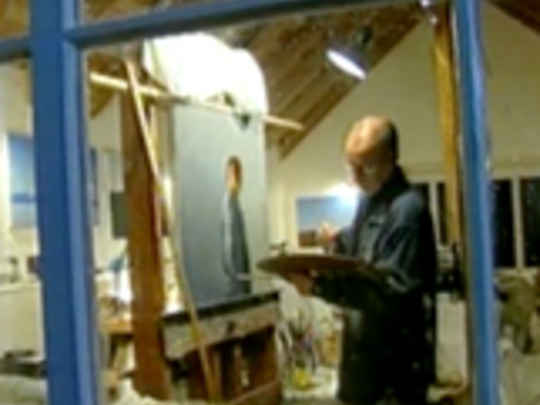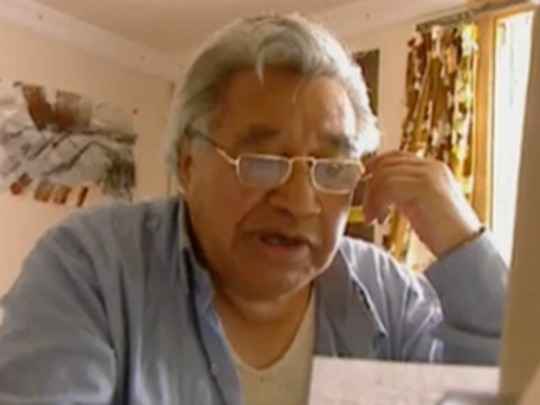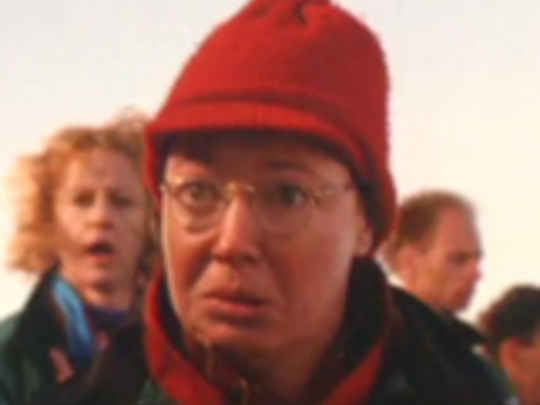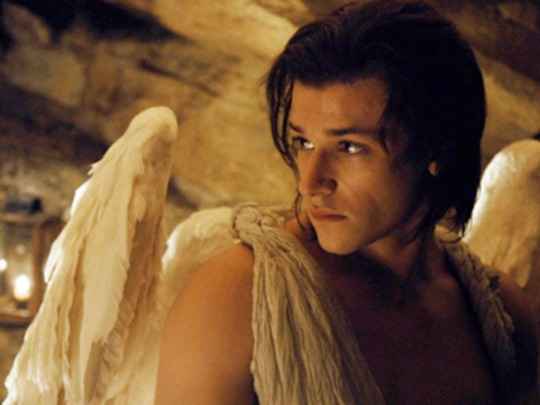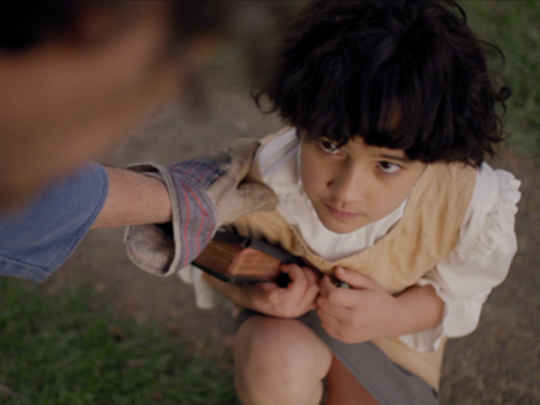1- Lloyd Jones, Tze Ming Mok
2- Kelly Ana Morey, Charlotte Grimshaw
3- CK Stead, David Eggleton
4- Joy Cowley, Kevin Ireland
5- Cliff Fell, Nigel Cox
6- Sarah-Kate Lynch, Hinemoana Baker
7 - Elizabeth Knox, Tusiata Avia
8 - Patricia Grace, Jenny Bornholdt
9 - Brian Turner, Glenn Colquhoun
10 - Lloyd Spencer, Damien Wilkins
The Book Show - Series One
Television (Full Length Episodes) – 2006
...I used to work as a food writer, and it's only because I got made redundant from that job that I actually ended up writing books.
– Novelist Sarah-Kate Lynch on how she began writing novels, in episode six
I didn't feel an awful lot about the book to be honest. I kind of think it's a book written for people like him. It's not going to appeal to I think many other generations other than baby boomers who as he says are self-obsessed and self-absorbed.
– Actor Laura Hill on Balsamic Dreams by Joe Queenan, early in episode six
...of course you read for different reasons, and so the highest kind of reading, I get from someone like Saul Bellow or Alice Munro who I think are extraordinarily human writers. They’re able to express what it is to be human in a way that I can hardly think of anyone who does it better. On the other hand, you can get quite trashy books which are very entertaining, and I'm quite fond of those too.
– Author Nigel Cox on what he looks for in his reading, late in episode five
It struck me as a a setting in search of a story . . .The theme of the book in a way — Degrees of Separation — is the idea that we're related in ways which we don't know; we’re all distant from each other in ways that we probably don’t imagine. But in order to put that forward, she has a lot of very improbable coincidences amongst her characters...
– Dominion Post Books Editor Guy Somerset on Laurence Fearnley's book Degrees of Separation, in episode five
...it was quite a pleasant change because we get quite a few novels set in Auckland, and a few set in Wellington; very few set in Dunedin, and I really did enjoy walking the streets with both authors and they really did give you a sense of place.
– Bookseller Doris Mousdale on Laurence Fearnley's Degrees of Separation and Emma Neale's Relative Strangers, early in episode five
...I always like to read a classic. I think it's good for you to read one a year. Last year it was Huckleberry Finn, and this year it's Charles Dickens' Our Mutual Friend. It's a great satire. It has the stinking Thames running through it like a character in the novel, and it's full of wonderful people...
– Writer Kevin Ireland on his reading diet, late in episode four
I had a son who was not reading for different reasons. He was going to slip through the cracks, and I started writing for him, and then for other children. And I became aware of a whole lot of children out there who were not responding to the rather ordinary and uninspiring books that they would have had.
– Joy Cowley on why she began writing for children, in episode four
Books were hard to come by when I was growing up, in the place I was growing up, because I was brought up in Fiji. And it was mostly comics that we were into, and I remember reading Phantom comics and classic illustrated comics of Huckleberry Finn and Twenty Thousand Leagues Under The Sea.
– Poet David Eggleton on books that were early influences, late in episode three
Well I’m working, yes, and yes I seem to be okay. No reason to stop . . . Not while you feel you’ve got another book to write, or another poem to write. And I don't enjoy the idea of stopping, I enjoy the idea of keeping on.
– Writer CK Stead on continuing to work at age 73, in episode three
She strikes me as somebody that needed quite a lot of direction — though having said that, she says herself that she's not one to do what's expected, and she's not done what's expected here. But I think the book works despite itself.
– Dominion Post Books Editor Guy Somerset on Jacqueline Fahey’s memoir Something for the Birds, early in episode three
I thought it was quite a treat actually, I was really pleased to get the book, and I enjoyed reading it. And I thought I was going to get really detailed information about the 30s, 40s and 50s of New Zealand at a time where it was going through great change, and Jacqueline was at the forefront of all that change . . . she was one of the first women painters of note in New Zealand . . . I did enjoy it. But I thought there were patches in it. I was expecting more from it
– Bookseller Doris Mousdale gives Jacqueline Fahey’s Something for the Birds a mixed review, early in episode three
...what I'm reading always relates to what I'm writing, and I'm writing short stories at the moment and that's my focus. So if you asked me what my favourite, at the moment, New Zealand writer, it would be Katherine Mansfield. And I've just reread the collected short stories and been impressed.
– Author Charlotte Grimshaw is asked about her favourite New Zealand books, late in episode two
So this is where you go when you’ve written an award-winning first novel and got that difficult second book out of the way: somewhere you can work on the third one till the cows come home perhaps. Somewhere you can get away from it all.
– Reporter Finlay Macdonald introduces novelist Kelly Ana Morey's quiet Northland retreat, in episode two
You have to be disciplined. The books don't just come out of thin air. It always surprises me how often people think that I actually don't do anything . . . but if you sit down every day for three hours you should be able to crank out a thousand reasonably good words. And if a book is 60 to 80,000 words, it really doesn't take you that long to get it up there.
– Novelist Kelly Ana Morey on writing books, in episode two
...people that read New Zealand fiction, poor heart and souls that they are, they know what they’re doing; they're good readers, and you can't treat them like idiots, you know. They've got fabulous imaginations. They are probably better read than you, and so you have to trust them.
– Novelist Kelly Ana Morey on trusting the reader, in episode two
Both my parents left school at twelve, no education whatsoever . . . But my mother intuitively knew that — well, she knew that education was a good thing — didn’t know how to go about it. So the only way was really to push us in the direction of books. Which she did a fairly good job of. I mean we were introduced to the Hutt Library fairly early on.
– Author Lloyd Jones on growing up in Lower Hutt, in episode one
I don’t read fiction, I don’t read books by women, and I don't read books by South American authors, so this was like a triple whammy for me. And I thought it was gonna be all sort of female mystical with all sorts of ghosts . . . But they explored a lot of Indian myth, and a lot of gypsy myth. I enjoyed it. It reminded me a lot of watching Zorro as a kid.
– Guest reviewer Marcus Lush on Isabel Allende's novel Zorro, early in episode one
...there's a lot of added pressure when you're reading a book for a book show . . . you don't want to miss the real essence of it.
– Presenter Marcus Lush on reading for The Book Show's book club, early in episode one
I thought, "I'll just write up that dream that I had when I had pneumonia" . . . the first hundred pages were the dream. And then I just read it over, what I'd got, and I had two thoughts: one, "this is a novel and there's more of it", and the other one was "I think I might be writing a bestseller."
– Elizabeth Knox on the birth of bestselling book The Vintner's Luck, in episode seven
Probably the stuff that really grabbed me when I was a kid would have been the Grimm fairytales, um Greek myths - you know, adventure-type stuff. And that's what reading was for me. It was adventure. I grew up in Christchurch, which for me wasn't very exciting. So I needed fantasy.
– Tusiata Avia, late in episode seven
She has this amazing, sort of sure, calm voice . . . she writes with a lot of rage, Dinah, but it's very very contained.
– Poet Jenny Bornholdt discusses the work of poet Dinah Hawken, late in episode eight
I realised that there were people who'd never really been written about. I hadn't seen them written about in the way that I thought they could be. And I started to realise this thing about voice: that we each had our own voice, and that I had my own voice too.
– Patricia Grace is asked if she expected her early writing to be about Māori people and themes , in episode eight
I was becoming more and more irritated, you might say, by the fact that New Zealand was turning into a place where every second man and woman was said to be a celebrity, and they were therefore "somebodies". Many didn't strike me and many others as of much consequence.
– Brian Turner is asked why he called his memoir Somebodies and Nobodies, in episode nine
...I grew up also in an oral tradition. We weren't necessarily big readers. I grew up every week with sermons, with kids in the playground in South Auckland who used their tongues to get out of fights or into fights, or out of school work or into school work, or into the teacher's good books.
– Author and poet Glenn Colquhoun is asked about his early influences, late in episode nine
...the thing that most troubles me or occupies my mind . . . is what's it all about? It sounds very naive, very simplistic, but I'm a fairly naive simplistic guy. And so it's an attempt to come to terms with the big questions about life...
– Zoologist and author Lloyd Spencer Davis on why he tackled Darwinism in his book Looking for Darwin, in episode ten
It's also really unfashionably optimistic, you know. He does this hard thing of selling optimism, because optimists usually sound a little bit simpleheaded in fiction or in writing. But here McEldowney, having gone through this incredible journey, actually comes out the other end, and you believe the world is something you want to hold.
– Damien Wilkins on Dennis McEldowney's memoir The World Regained, late in episode ten
[the] Nigella Lawson of New Zealand literature, someone with credibility, who also possesses the sparkle and appeal to pull a wider audience.
– Book Show producer Colin Hogg on the show's host, author Emily Perkins
